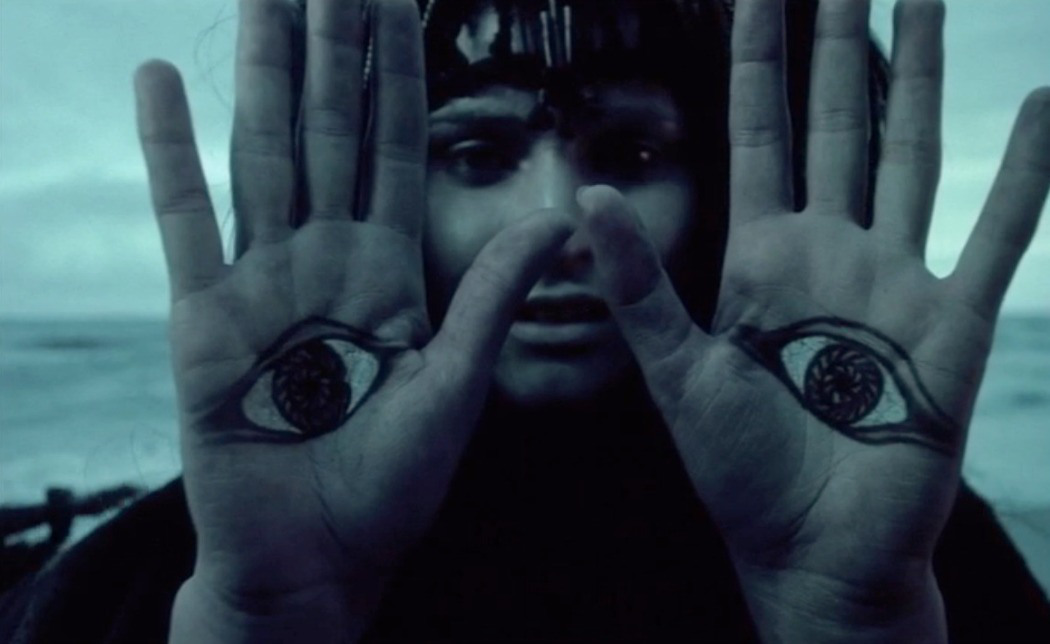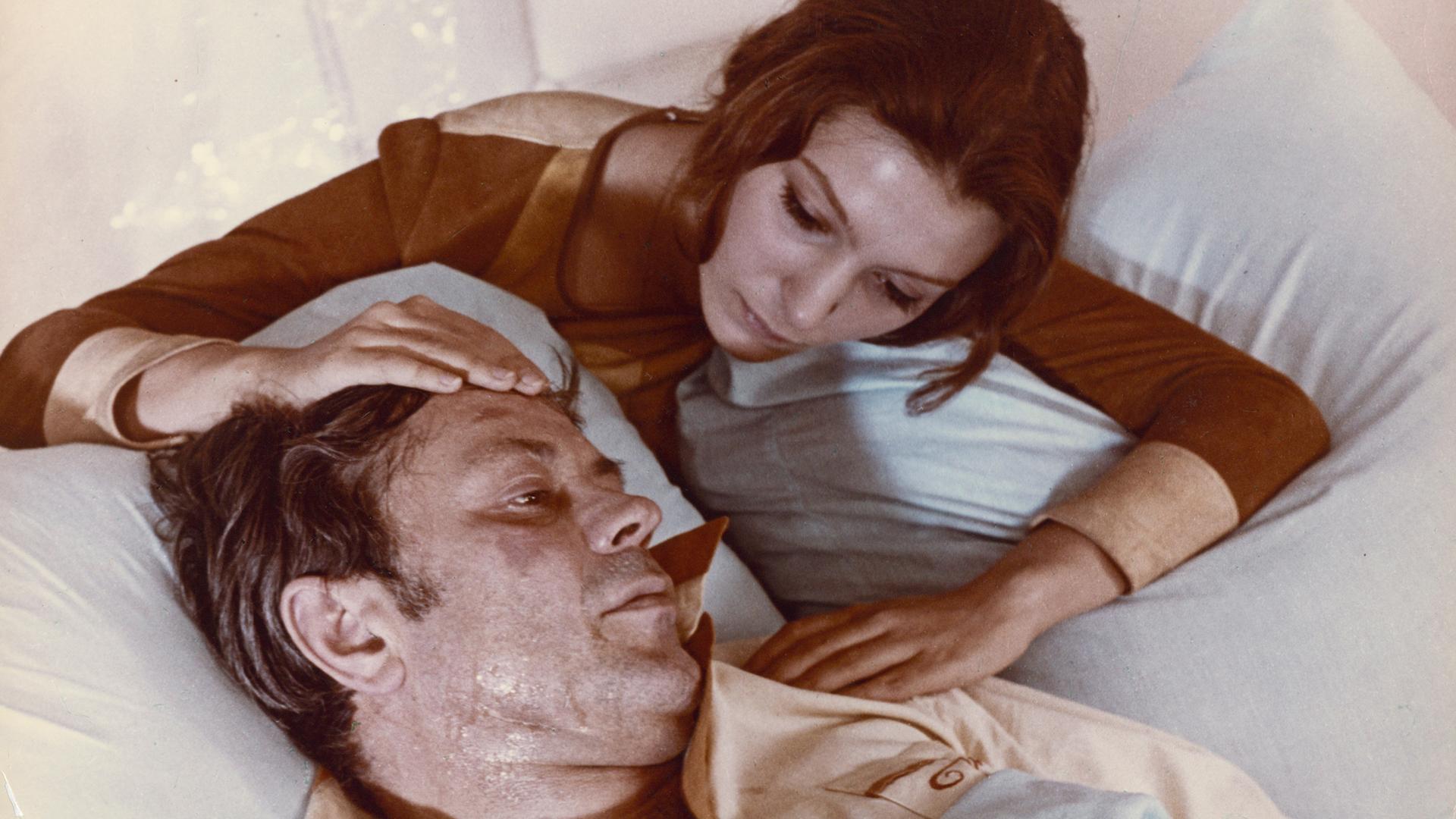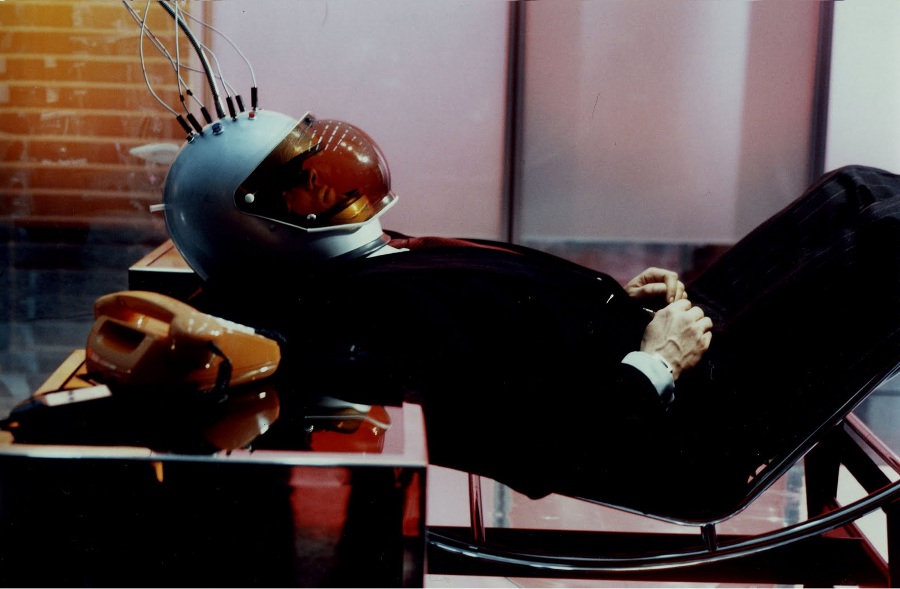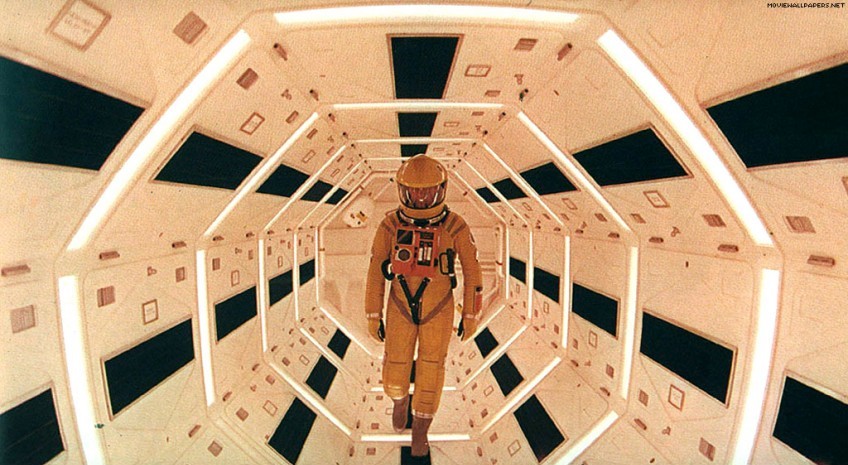5. On the Silver Globe

The stories attached to this hugely plagued film could be their own article. In short, director Andrzej Żulawski worked on On The Silver Globe for years during the mid 1970s (the source was his grand uncle’s novel of the same name).
Towards the end of production, Janusz Wilhelmi became the vice-minister of cultural affairs in Poland, and demanded that the film be terminated (on the grounds that he deciphered the film as a statement against Poland’s political systems).
Twenty percent of the film did get ruined (as well as all of the props and sets), but eighty percent was preserved by cast and crew members. It’s history is ironic, because its results impacted the film in a very eerie way; a film that discusses the issues of singular control were affected by corruption.
The film’s tale on a team of astronauts that survive a crash landing on a foreign planet is a difficult one to swallow. Żulawski’s hyper-strenuous filmmaking style makes the entire two and a half hour long affair frantic. Almost every sentence is screamed out of panic or revelation. The religions that spawn due to the influence of Earth get frightening as they progress.
When we reach the super disturbing crucifixions and impaling scenes, we learn that humanity’s damnation of others due to selfishness will always continue. Weirdly, the filler shots used for the missing scenes (with narration by Żulawski himself) fit seamlessly, because the shorts of Earth intertwined with this distant place instills a disturbing look at what’s really going on here.
4. Upstream Color

How talented can one man be? Shane Carruth’s latest work was highly anticipated since his time travel piece Primer. Eventually, Upstream Color came to light, and Carruth holds the following credits for this creation: director, co-producer, co-writer, director of photography, co-editor, score writer, and lead actor.
The film’s time length is not demanding (one and a half hours), but the entire picture is a bullet-fast look at a concerning issue. Various humans are discovering that they are being manipulated by implanted parasites, and their lives are strictly linked to the lives of orchids and pigs. It is a test that we ourselves have to discover through our own devices as the film jets forward, because it is not a plot line that is pushed to the forefront from early on.
The result is an achingly beautiful film with droning music, powerful images, and the manic editing that pieces it all together. It is a gorgeously fearful film. It is stuffed with uneasiness that we feel before the characters realize that they feel it too. When the film finally begins to venture towards a solution for this crisis, the film gets almost unbearably emotional.
It is as if you are witnessing the rebirth of all of these different beings; their purposes in life are revised. You may not cry during Upstream Color, because you may not even know what it is you are feeling. If you do cry, that is perfectly fine, because not many films affect all parts of your brain and heart at the same time.
3. Solaris (1972)

Sorry Steven Soderbergh, but there is no way in hell the remake will outdo the original by Andrei Tarkovsky on a list like this. In the original version, patience is an absolute must. The film works glacially for its near-three hour run time, but the payoff is almost indescribable.
Near the start of the film, you are in a car watching the traffic ahead of you as you coast down a highway. This last for God knows how long until you suddenly arrive in space. You don’t experience the travel into space. Much of Solaris, in fact, is hidden. You follow much of it based on the words of others.
That is until each and every surprise the film has to offer. Suddenly, beings you never saw before pop up. You start to see people on board that should not be there (like the copies of the main character’s late wife that appear). We then reach the zero gravity scene, which is pure cinematic magic.
Tarkovsky experimented with the testing ways of the sci-fi genre later on with his opus Stalker, but Solaris feels more like a visit to a distant universe more than it is a work of fiction. By the end of Solaris, you won’t be sure of how much you witnessed being real, but you will be sure that it was all real to you.
2. World on a Wire

Where does one begin with this masterpiece? Rainer Werner Fassbinder’s only sci-fi piece World on a Wire was a two-part television movie that appeared once in 1973 and was nowhere to be seen again; that is until Fassbinder aficionados uploaded copies onto the internet (somehow) to share.
Once the film was reintroduced in restored fasion in 2010, the world was reacquainted with this pitch perfect take on alternating realities. Perhaps due to its absence from the world for so many years, World on a Wire almost feels more authentically distant from anything we know than most science fiction works. Just to look at any single frame from this three and a half hour long picture is breath taking no matter which frame you pick.
Sadly, this beautiful world is not perfect. The first half is dedicated to Fred Stiller (played by Klaus Löwitsch) looking into the weird occurrences that have been happening. By the end of the first act, he is informed that nothing around him is real (he is already aware of simulators that can be accessed, but he was never sure that he himself was in a simulation as well).
The second half is the world turning on him (as is programmed to do so) until he finds ways to outsmart his reality. Of course, these are many ideas that The Matrix tackled decades later. While The Matrix will be more appealing to those that want to see alternative realities being exploited and stretched, World on a Wire is more of a familiar world crumbling. Its results are more effective if you are wanting to see the beauty inside of devastation.
1. 2001: A Space Odyssey

Come on. What else would be here? Stanley Kubrick’s 2001: A Space Odyssey is so masterful, there are still people insisting that he staged the American moon landing. It is so good, the Academy did not recognize it for its make up effects, because they did not see the merit in awarding “real apes”.
Okay, so 2001 is clearly a technical powerhouse. It is fifty years old, and it is still astonishing to look at (seriously, some of the effects have been revealed and they are still impressive). Its longevity is due to its gripping nature, of which you cannot turn away from. It moves so slowly, yet you have to witness each and every second. Hell, it starts off with the dawn of humanity for half an hour (after an overture, of course) before we even explore outer space.
That is because 2001 recognizes the importance of history when it comes to the future. We see the affects the monolith (which will never perfectly make sense no matter how you explain it) had on the earliest forms of humans, and we understand how it affects the humans of the future (to some extent).
We get pieces of stories stapled to one another in the second third, before we drive right into the exquisite half hour that simply could not be made by humans (and yet it was). The Star Gate sequence, even fifty years later, will remain one of the definitive moments in film history, and no amounts of CGI will ever change that.
No one has the same recounting of their visits back in time, in the future (well, we have passed 2001 but it is still the future to me, dammit) and of different parts of the Solar System; each take on the film will differ in some way.
The film predicted many tools we use today (including tablets, for instance). The film just is the future, one of the most impactful science fiction works of any medium, and a revelation even fifty years later. It pushed cinema as much as it continues to push our minds.
Author Bio: Andreas Babiolakis has a Bachelor’s degree in Cinema Studies, and is currently undergoing his Master’s in Film Preservation. He is stationed in Toronto, where he devotes every year to saving money to celebrate his favourite holiday: TIFF. Catch him @andreasbabs.